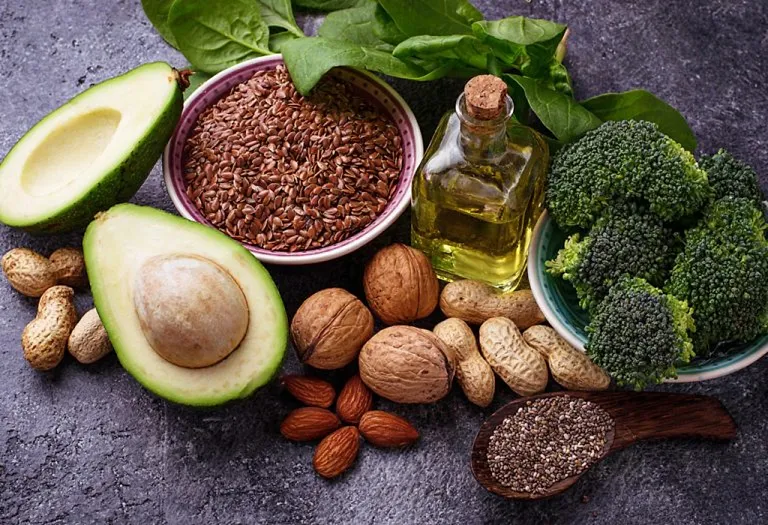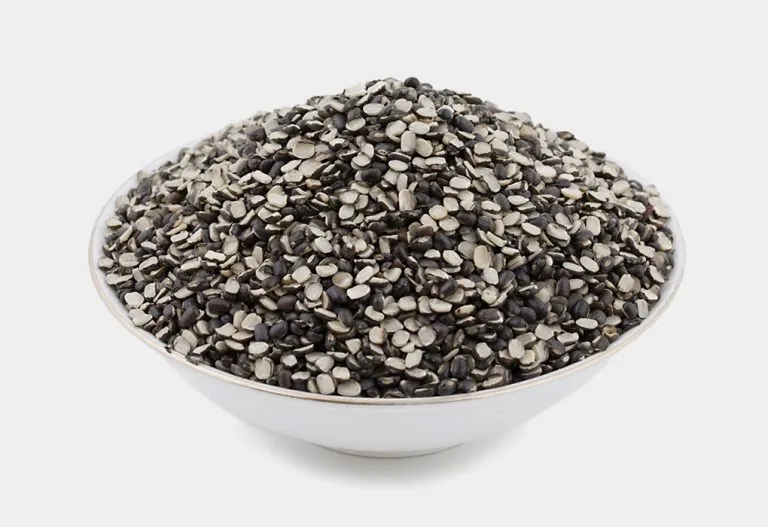Oranges in Pregnancy – Benefits and Side Effects

- Is It Safe to Eat Oranges During Pregnancy?
- Nutritional Value of Oranges
- Benefits of Oranges in Pregnancy
- How Many Oranges Can You Eat While Pregnant?
- What Is the Best Time to Consume Oranges?
- What Does a Craving for Oranges Mean in Pregnancy?
- Drinking Orange Juice During Pregnancy
- Are There Any Side Effects of Eating Oranges During Pregnancy?
- Tips to Include Oranges in Your Diet
- FAQs
Can I eat oranges in pregnancy? This is one of the most popular questions next to, Is drinking orange juice while pregnant safe for the baby? Fresh fruits and vegetables are an integral part of a pregnant woman’s diet. When a woman is pregnant, she should be careful about her eating habits, as the wrong food can lead to severe problems. If you are pregnant for the first time, naturally, you will think twice before eating anything. You might wonder whether you can eat citrus fruits like oranges in pregnancy. Oranges are a rich source of Vitamin C, and eating them can instantly cheer you up. The sweet and tangy flavour of oranges can even provide you with some respite from morning sickness. But can you eat oranges during pregnancy? Find out!
Is It Safe to Eat Oranges During Pregnancy?
Is orange good for pregnancy? Yes, oranges are definitely one of the best fruits to include in your pregnancy diet. You should eat the whole fruit to derive the maximum benefits. You can also drink freshly squeezed orange juice if you don’t like to eat raw oranges. However, avoid drinking orange juice in tetra packs, as it may contain preservatives that may not agree with your system. You should also avoid drinking orange juice sold by street vendors, as it may be contaminated with several microbes. In fact, there is a misconception that the acid in the juice can kill bacteria. However, it is not true. According to the FDA, pathogens like E. coli O157:H7 can survive in acidic juices, like orange or apple, for quite a long time (1). To get maximum benefits, eat the whole fruit or drink orange juice prepared at home.

Nutritional Value of Oranges
Here is the nutritional content value of a medium navel orange of about 100 grams:
| Nutrition | Value |
| Calories | 47 Kcal |
| Water | 86.8g |
| Carbohydrates | 11.8g |
| Dietary Fibre | 2.4g |
| Sugars | 9.35g |
| Protein | 0.94g |
| Fat | 0.12g |
| Vitamin C | 53.2mg |
| Potassium | 181mg |
| Folate | 30mcg |
| Calcium | 40mg |
Source: USDA (2)
Benefits of Oranges in Pregnancy
Craving oranges while pregnant? You’re not alone! Oranges are rich in Vitamin C, iron, zinc, and folic acid. Eating oranges in the 3rd trimester of pregnancy can improve your immune function, strengthen your baby’s brain development, and also provide benefits to your skin tone. Consumption of oranges during the first trimester of pregnancy is highly recommended as it aids in the development of the brain of the foetus. Read on to find out some of the health benefits of eating oranges in pregnancy.
1. It helps strengthen the immune system
Oranges are rich in Vitamin C, which can strengthen the immune system of the woman and the baby. Oranges also release iron and zinc, which are vital for the immune system. Eating oranges can help lower the risk of allergies while pregnant. It can also support the development of cartilage, tissues, blood vessels, and bones in babies.
2. It can help develop the baby’s brain
Oranges are a good source of Vitamin B6 and folic acid (3). Eating oranges while pregnant will help develop your baby’s brain and prevent neural tube defects, which are known to cause brain and spinal cord abnormalities in a baby. The folate content in oranges can help in the formation of blood cells, growth of new tissues, and in the development of a healthy placenta. However, excess folate intake may lead to high birth weight in a baby.
3. It can help prevent constipation
Oranges are rich in soluble and insoluble fibre and cellulose, which can help regularise bowel movement and cure constipation, a common problem in pregnancy (4). The fibre content in them can also provide relief from stomach issues and bloating.
4. It can help control blood pressure levels
The high potassium content of oranges can help regulate blood pressure in pregnant women and relieve hypertension.
5. It can keep you hydrated
In addition to contributing to daily fluid intake, oranges provide sodium and potassium to help maintain fluid balance in the body. With 88% water content, oranges support water balance and hydration.
6. It can benefit your skin
Oranges are potent antioxidants; eating them can have a soothing effect on the skin, keeping it taut and firm and supplying enough moisture to prevent acne.
7. Replenishes nutrients in the body
Vomiting due to morning sickness can deplete the body’s nutrients. Oranges have a high nutrient density that helps replace electrolytes lost through vomiting and/or recovery from the common cold and sickness.
8. Helps reduce anaemia
Folate, iron, and vitamin B12 deficiencies are all potential reasons for anaemia in pregnant women. Oranges are rich in Vitamin C, which is necessary for the body to absorb iron effectively. It goes wonderfully with meat and other iron-rich dishes. Because of this, consuming oranges is a healthy, natural way to lower the risk of anaemia and other issues during pregnancy. Say, if you are having beans, which are rich in iron, you can pair beans with vitamin-C-rich foods like oranges, strawberries, sliced bell peppers, or melons, or drink some orange juice when eating legumes or green leafy vegetables, to kick up the iron absorption (5) (3).
How Many Oranges Can You Eat While Pregnant?
Science provides strong evidence of the relationship between the consumption of oranges and pregnancy. However, moderation is a must. So, what is the ideal daily consumption quantity of oranges for a pregnant woman?
A daily dosage of 85 milligrams of Vitamin C is recommended for pregnant women. This requirement can be met by consuming three oranges daily or other foods rich in Vitamin C. However, if you eat oranges along with other foods, make sure you also consider the quantity of Vitamin C present in other foods that you consume during the day. Keep in mind that your daily intake should not exceed the recommended intake, as oranges could lead to acidity. If you eat other Vitamin-C-rich foods, make sure you consume oranges in moderate amounts. Consult your doctor regarding the number of oranges to include in your diet.
What Is the Best Time to Consume Oranges?
Oranges can be consumed anytime during the day, even on an empty stomach. There is no restriction on when or how you include them in your diet. What about the consumption of an orange for a pregnant woman at night? Since oranges are citric in nature, consuming them at night should be avoided as they could trigger heartburn.
What Does a Craving for Oranges Mean in Pregnancy?
If you are craving oranges during pregnancy, it means that your body requires vitamin C, which is found in citrus fruits and supports your baby’s bones, teeth, and other vital tissues.
Drinking Orange Juice During Pregnancy

Pasteurised orange juice without any additives and preservatives is a great option to include in a daily pregnancy diet. Per day, you can have up to two glasses of orange juice during pregnancy. You can have up to two glasses of orange juice daily. Being a rich source of calcium, pasteurized orange juice can help strengthen your bones. If you are lactose-intolerant, you can drink fortified orange juice, which is a good substitute for milk and can help relieve morning sickness. You could also squeeze juice from fresh oranges and enjoy a fresh drink. But try not to add too much sugar as it could increase your glucose levels.
When taking iron supplements with orange juice, avoid fortified calcium-containing orange juice. While calcium is a crucial nutrient during pregnancy, it can reduce iron absorption in the body (6).
Are There Any Side Effects of Eating Oranges During Pregnancy?
Oranges taste delicious and can offer many benefits during pregnancy; however, when consumed in excess, they can lead to unwanted complications.
- The high content of citric acid could lead to a sore throat and also erode the teeth enamel.
- The fibre content may lead to abdominal cramps and loose motion if consumed in excess.
- As oranges are acidic in nature, eating them in excess could cause heartburn in a pregnant woman suffering from gastroesophageal reflux disease (GERD).
- An excess of Vitamin C in the body could lead to preterm labour.
Tips to Include Oranges in Your Diet
If you love eating oranges, know how to eat them the right way during pregnancy. Here are a few tips to help you include oranges in your diet.
- Slice some oranges and add them to your regular bowl of salad.
- Mix it with other fruits and make a fruit salad.
- Peel the fruit and blend it in a juicer to enjoy a thick and pulpy glass of orange juice.
- Sprinkle some brown sugar on the orange slices and microwave them. Enjoy the dish as a dessert.
FAQs
1. Can consuming excess amounts of orange juice harm my unborn baby?
Wondering whether oranges in pregnancy are good to drink while you’re pregnant, but you should only have them when it is pasteurised and fortified with calcium, and in a doctor-recommended quantity.
2. Can I consume orange peels during pregnancy?
You can consume orange peels during pregnancy. Orange peels are high in Vitamin C levels. In fact, they are twice as high as in the fruit.
3. Can you eat orange seeds during pregnancy?
Orange seeds are not known to cause any harm during pregnancy. But if you consume a large seed by mistake, you can choke on it. Try to pick small oranges like the satsumas or tangerines, which have very tiny seeds and are easy to peel.
4. Are oranges good for pregnancy in the third trimester?
Yes, oranges continue to be an immunity-supporting fruit for pregnant women during their last leg of pregnancy. It relieves nausea, supports the immune system, and helps regulate blood pressure. Moderation is important as excess consumption could lead to heartburn or indigestion issues.
5. Is orange fruit good for pregnancy?
Yes, orange is a vitamin-C-rich fruit that is good for pregnancy. However, moderation is the key.
Oranges can offer numerous benefits to a pregnant woman. But if you are planning to include them in your regular diet, it is recommended that you consult your doctor first. If your doctor gives it a go-ahead, eat them in moderation. You can also eat them post-pregnancy, as they are a great fruit to add to a post-pregnancy diet. The low-fat content and glycemic index of oranges can help you get back in shape post-delivery. It also has properties that nourish the skin and prevent premature ageing. So keep snacking on this tasty fruit throughout pregnancy and stay healthy!
Also Read:
Eating Apples While Pregnant
Eating Jamun During Pregnancy
Consuming Bananas in Pregnancy
Consuming Pineapple When Pregnant
Was This Article Helpful?
Parenting is a huge responsibility, for you as a caregiver, but also for us as a parenting content platform. We understand that and take our responsibility of creating credible content seriously. FirstCry Parenting articles are written and published only after extensive research using factually sound references to deliver quality content that is accurate, validated by experts, and completely reliable. To understand how we go about creating content that is credible, read our editorial policy here.
1. FDA – Fruits, Veggies and Juices (Food Safety for Moms-to-Be)
2. USDA – Oranges, raw, all commercial varieties
3. NSW Government Food Authority – Food Safety During Pregnancy
4. March of Dimes – Eating healthy during pregnancy
5. Johns Hopkins Medicine – 5 Snack Foods to Eat While Pregnant
6. Mayo Clinic – Pregnancy diet: Focus on these essential nutrients




































